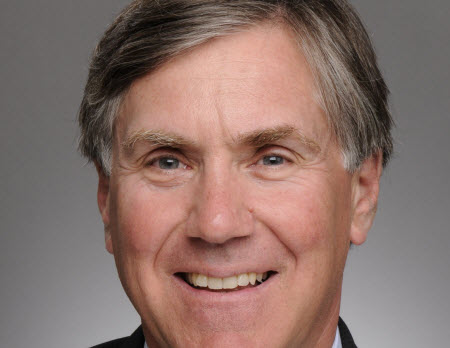EPIX Writes a Script for Growth
The smarter way to stay on top of the multichannel video marketplace. Sign up below.
You are now subscribed
Your newsletter sign-up was successful

Seven-year-old premium channel EPIX last year joined rival programmers HBO, Showtime and Starz in the scripted-series arena with the launch of spy drama Berlin Station and political dramedy Graves, starring Nick Nolte. This year, the Paramount Pictures, Metro-Goldwyn- Mayer and Lionsgate-owned EPIX will add a third scripted series to its lineup, a reboot of the 1980s film Get Shorty, starring Chris O’Dowd and Ray Romano. EPIX CEO Mark Greenberg spoke with Multichannel News programming editor R. Thomas Umstead about the network’s original programming ambitions as well as some of the challenges facing content providers in a multiplatform distribution environment.
MCN:How do you break through the clutter of content out in the television marketplace?
Mark Greenberg: You know it’s a great question, and I think it’s one that we all have to come to terms with. First, being commercial-free, uncut and unedited, I think it is a real advantage versus those that are commercial networks. They have 42-minute hours interspersed with commercials, where I think our storytelling allows us to do things that they can’t. Second, we’ve got great scripts with great casts and great writers, and then we support all of that with an enormous media campaign. I’m a big believer that cream always rises to the top. Berlin Station was written up by the Los Angeles Times and The New York Times as one of the 10 best series of the year. Graves received a Golden Globe nomination for Nick Nolte, so I think the good programming content will always find its audience.
Our first two series performed, in terms of total viewership, no differently than one of our top movies, like Hunger Games or a Star Trek or Bond movie, so it was really great that our audience is finding and seeing it. We’re equally optimistic about taking an intellectual property like Get Shorty that had a big following as a movie. We’ve made it more current, and with Chris O’Dowd and Ray Romano at the head of the cast, you have people who are extremely well-known and who have done a lot of work in the movie and TV business. You know, I believe if you get the right cast the right crew and the right metrics, you will find success.
MCN:Having said that, what’s on the docket for EPIX over the next six months?
MG: My belief is, you build it one block at a time, and I think we’re going to do this smartly. We could have put 20 shows out there to see what sticks. I love what we’ve done so far ... those three shows are the foundations to what we believe our original series will be. We’ve worked with the NHL on The Road to the Winter Classic … it’s our third season of doing that. I think the fans really like it, and because we’re a premium [channel], we can be a little bit edgier in terms of the content, which I think is good for them and good for our brand. I think from a storytelling standpoint, we will continue to do on our documentaries, which will complement what we do on our series, which complements a great line up of movies. We’ll have as many movies in the ecosystem as almost any network that’s out there today.
MCN:As the industry adjusts to ever-evolving shifts in audience viewing, what’s the biggest challenge for EPIX and TV in 2017?
MG: I’ve been on the record this. I think the programmers and the operators have to find a better place with each other. I think over the last several years, the leverage of who beats up on whom is hurting everyone. When I started in the business in 1981 at HBO, we had a much healthier working relationship, and I think that’s a better place for us to be. The question is how can we all work together to really build a better business model? It isn’t about one over the other; I think it’s how we grow the business in a bigger and better way.
I think that’s going be a really big, big challenge for both sides. As the buying and programming power gets bigger and consolidation within the industry continues, I think we have to keep the consumer in mind at the end of the day. Sometimes we forget to use that word enough. I think if we put [the consumer] at the center of our attention and collaborate together on how to make the product better, we can all really do well together.
MCN:Any plans to offer EPIX directly to consumers as an OTT service?
MG: You know, I think we’re over the top with Dish [Network, via Sling TV]. Someone has to explain to me what over-the-top really means. I think it’s a kind of a silly term — they’re digital distributors; they’re using the Internet to distribute content, as opposed to a coaxial wire or a satellite. It’s just content being delivered by different retailers.
The smarter way to stay on top of the multichannel video marketplace. Sign up below.
